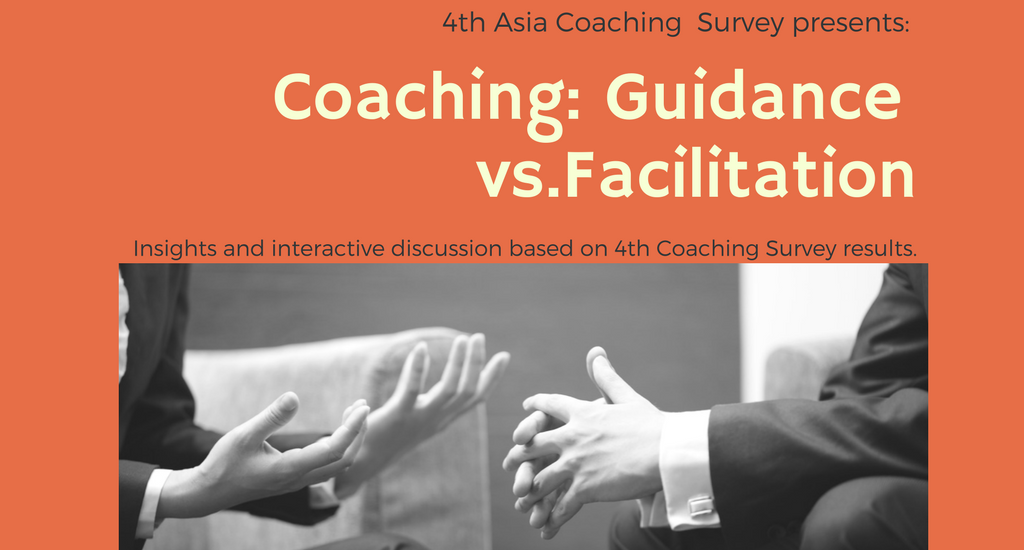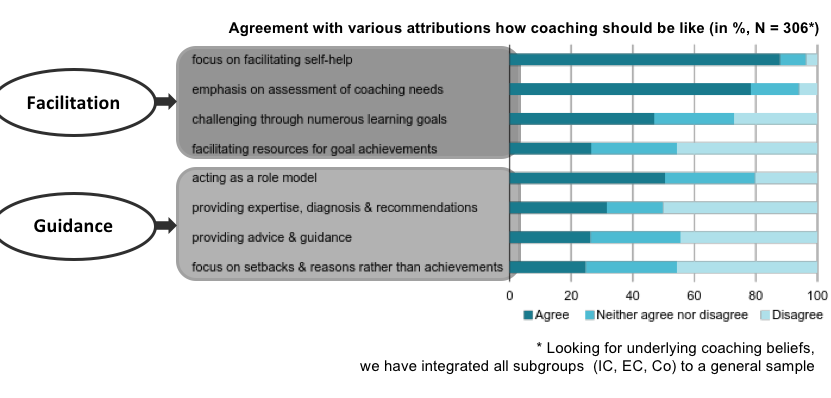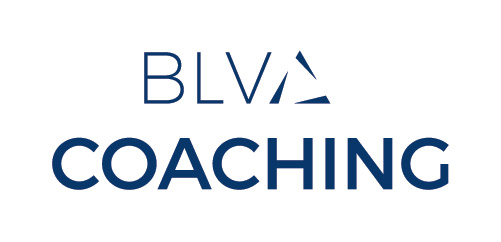- 29th November 2017
- Posted by: Mila Dorosh
- Category: Coaching Community

By Mila Dorosh[1] and Ralph Kattenbach[2]
Probably the hottest topic in coaching community today is in how far coaches should offer guidance in the facilitating coaching process. Based on some fascinating findings of the 4th Asian Coaching Benchmark[3], publicly presented in Shanghai on Monday, November 6th, a fruitful discussion emerged on this topic.
The Asian Coaching Benchmark Survey continues the Coaching in China study, conducted in 2010, 2012 and 2014, and broadens its scope to other Asian countries. The current survey, conducted in China, Hong Kong and India, included a measurement of coaching beliefs and expectations among the 554 coaches and company representatives. More specific, we asked for their agreement with various statements about the nature of coaching. Some of the statements were related to coaching as facilitation (focus on facilitating self-help, challenging coachee through numerous learning goals, facilitating resources on goal achievement) and others referred to coaching as guidance. While most of the people agreed on the facilitation nature of the coaching, there was a surprisingly high amount of respondents siding with a guiding role for coaches, too. For example, more than 30% of all respondents agreed that coaches should provide expertise, diagnosis and recommendations.
What exactly does this mean? First of all, almost all of the respondents agreed that coaching is a facilitating process. Yet, for a considerable group of participants coaching should also include elements of guidance. This does not mean that guidance diminishes the facilitating nature of coaching, both characteristics can occur independently from each other. However, for the “purists” of coaching, elements of guidance negatively affects nature and outcomes of the whole process. Situation where two different approaches to coaching co-exist in the market leads to a perception gap of what coaching is, or to be more precise, what it is not. To understand this phenomenon further we had to dig deeper into the data to find where the gap is coming from, and further address the topic with various coaching professionals and company representatives.

We were looking for what personal or professional criteria would be linked to supporting guidance elements in coaching. Age, sex, years of experience and country of origin or market did not have any significant influence on beliefs what coaching is. One of the more obvious ones was nature of occupation. Company representatives and internal coaches tend to support guidance in coaching, while external coaches do less. That draws to the conclusion that market expectation from coaching is different from what coaches are ready to offer. We could assume there is a link between that and the tendency of the company respondents to be less satisfied with coaching services in 2017 than they were in 2014.
“ICF certified coaches show a strong rejection of any guidance beliefs in comparison to those with other credentials or without”
Our second finding refers to the impact of certifying bodies. Coaches without any credential showed significantly stronger beliefs in the guiding nature of coaching than coaches with a credential. Furthermore, holding ICF credential is directly linked with supporting pure facilitation . ICF certified coaches show a strong rejection of any guidance beliefs in comparison to those with other credentials. It is interesting to compare that tendency with the growing importance of credentials for the companies during coach selection process. This year credentials became second significant criteria for the companies when choosing a coach, surpassed only by coaching experience. It seems that the companies might not differentiate between guidance and facilitation in coaching, but they want to hire coaches who do!

We discussed our findings with a special guest panel as well as with the audience made up of coaches and HR-specialists. As significance of facilitation was agreed upon by everyone, the question was whether we need to add some guidance in the mix, and how it will affect coaching outcomes. Our panelist Axel Kuhlmann, coach, business consultant and president of Shanghai Coaching Circle, shared how he explains it to his clients. In his words, it is about quick fixes and long-term results. In a vuca world that is all about efficiency, guidance and advising would provide faster results, quick fixes. If one wants results that would last, a purely facilitating coaching would help the coachees to develop themselves and the skills they need. However, we need to keep in mind that it might take longer time. If the clients choose for a quick fix, we should explain that it is not coaching but mentoring what they are asking for. Clearly communicate the shift of roles to the stakeholders and if necessary, change the contract as well, Axel Kuhlmann proposes.
The necessity of differentiating between coaching and mentoring and explaining the difference to coachees was raised by several coaches and company representatives in the audience. Linda Kiester, HR Director of 3M Group and panelist of our discussion, underlined how important it is to educate the coachee about the process, which also connected with the influence of how coaching was introduced to the potential coachee. If a coachee sees coaching as a sign that something is wrong with him and he needs fixing, it is harder to get his buy-in, and without coachee’s willingness facilitation process would be hard. That’s the time when the coaches would often hear “I came to get your advice” in return to their questions. Therefore we could see two big roles: role of a coach to explain what coaching process is, and role of a company to introduce coaching to their employees in a way that it wouldn’t be perceived remedial or as an exit strategy tool.
Joseph Chan, CEO of Keystone group and honorary VP of ICF Shanghai Chapter, talked about the trust-relationship and how having patience with the coachee helps to create a safe environment. Once trust is built, even the coachees that were looking for guidance and advice tend to “give in” and open up to the new learning experience based on facilitation. In a similar vein, the following approach was discussed in situations when coachee is not “ready” for facilitation nature of the coaching. In the very beginning of the coaching journey, coaches may guide their coachees towards the facilitating nature of coaching. Depending on the development of trust relationship, the degree of guidance can be reduced session by session. Finally, the pure facilitation process could start. This perspective meets the needs of coachees feeling insecure, being reserved or having fears in view of the coaching situation. Guidance becomes an auxiliary tool to prepare for the real facilitating process of coaching.
“…companies need coaches to be straight and clear about what coaching process is, to help organizations facilitate better results”
To our question whether coaches should follow the market needs and provide guidance under name of coaching, all the panelists said no. Linda emphasized that companies need coaches to be straight and clear about what coaching process is, to help organizations facilitate better results. Another trend mentioned was looking at organizational success as a whole, not as one coaching individual result, and finding solution that would benefit whole organizational efficiency with clear understanding when it is coaching and when it is mentoring.
Despite an evening of fruitful discussion and insights, we could not address all facets of the topic and some questions were left unanswered. For instance, how do we educate on a large scale about what coaching is, whether there is a way to integrate coaching into education system and increase the level of professionalism among the community. Overall, in reality elements of guidance still take place in coaching, and definitely are often expected from the coach. With growing number of professionals getting credentials and larger amount of people learning what coaching process is, coaching is becoming more about facilitation and less about guidance. In order for this to happen very often coaches need to explain the nature of the process, and benefits of pure facilitation vs guidance. And when advising is necessary, communication with coachee and stakeholders is due. Patience, curiosity and big picture thinking – same virtues that a coach needs when helping a coachee to facilitate his solution – same qualities coaches need when face expectation gaps about coaching and same qualities would help to facilitate the solution to those conflicting beliefs.
[1] Mila Dorosh is Millennial Coach and Founder of BLV Coaching, www.blvcoaching.com, miladorosh@blvcoaching.com
[2] Ralph Kattenbach holds the VW/SAIC VW Chair in Human Resource Management at Tongji University, Scool of Economics and Management (SEM), Kattenbach@tongji.edu.cn .
[3] The 4th Asian Coaching Benchmark has been conducted by the authors together with Uma Arora, Yene Assegid, Cynthia Chan, and Andrea Roth. We thank all sponsors whose contributions made this non-commercial and independent survey possible. The survey report is available online under www.coachingsurveys.com
2 Comments
Comments are closed.

Fantastic Article!
Mila, I want to leave you a testimony or reference. You may post this anywhere if you like.
It has been absolutely fantastic to have your energy and presence in our company. The team is really loving it and I’ve seen remarkable improvements already. The one to one coaching and group coaching I believe is leading us forward in the most positive ways. Thank you!
Thank you, Adrian, for your kind words! It has been wonderful working with you and your star team!